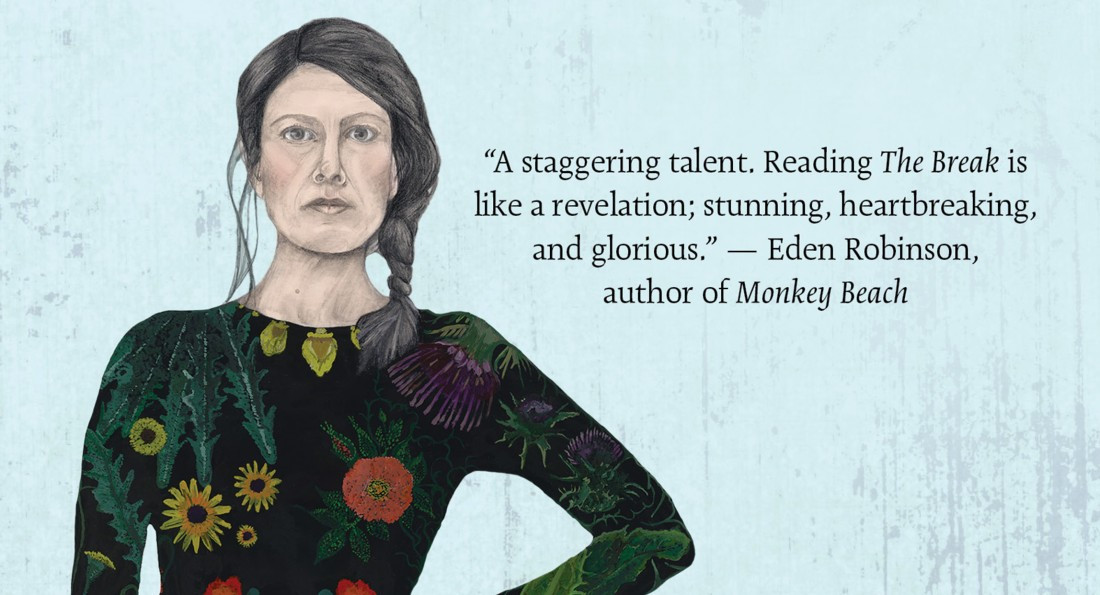Critipeg
The Break
Katherena Vermette
352 pages, House of Anansi Press,
Sept. 17, 2016
One of the most common themes in art about Winnipeg is our tendency to self-mythologize. The obvious examples of this are Guy Maddin and John K Samson, who interweave Winnipeg fact and fiction into their personal songs and stories.
It’s clear from the beginning of The Break that Winnipeg author Katherena Vermette is also interested in this self-examination. But, while Vermette’s Winnipeg is as full of ghosts and mystery as Samson’s and Maddin’s, it’s more heartbreakingly honest.
It’s a city steeped in racism, misogyny and violence, where Indigenous women face disproportionate violence and others let it happen. Seeing Winnipeg laid so bare on the page is gut-wrenching. It’s cathartic.
The Break, Vermette’s first novel, follows a family of Métis women whose lives are thrown into chaos when one of their youngest is the victim of a violent sexual assault. Mothers, sisters, cousins, great-grandchildren and a family friend all do their part in seeking recovery and answers.
The story is told through their fractured perspectives, eliding the assault itself to weave the surrounding events into the family’s intergenerational narrative.
Vermette won the 2013 Governor General’s Literary Award for her poetry anthology North End Love Songs, and her background as a poet is clear in her novel. Her writing often straddles the line between prose and impressionistic, ephemeral spirituality.
It adds a layer of nuance to an already fervently rich work, shifting between first- and third-person, past and present tense, making the emotional world of her characters feel painfully entwined with familiar Winnipeg streets.
Vermette’s biggest achievement is that she’s managed to write a book that’s truly about a family, rather than just a collection of individuals. The dynamics are honest and should feel familiar to anyone who grew up in the type of family where the women run the show and the men are obliviously incidental.
It’s reminiscent of some of the best works of fiction focusing on families, like The Magnificent Ambersons or The Royal Tenenbaums. Like those families were all linked by a grandparent figure, The Break is anchored by the lovable great-grandmother Flora, whose presence is always felt whether she’s on the page or not.
The presence of characters who’ve died long before the events of the book are similarly felt. It’s another dynamic Vermette explores so beautifully: the hole death leaves in a family. A hole that never really gets filled back up, but you learn to work around anyway.
Much like Ambersons, The Break manages to be political even when it isn’t. It’s a book that explores social issues without ever preaching, or even seeming to be about them at all. It examines the only element of those issues that matter: their human impact. It’s astonishing in its empathy.
The ways law enforcement and the health care system fail these women aren’t didactic or polemical. They’re tragic realities of life in our city, handled with commendable care by Vermette. She doesn’t pull her punches or dress up her truths. The Break leaves it all bare, and it demands to be read.
Published in Volume 71, Number 2 of The Uniter (September 15, 2016)








